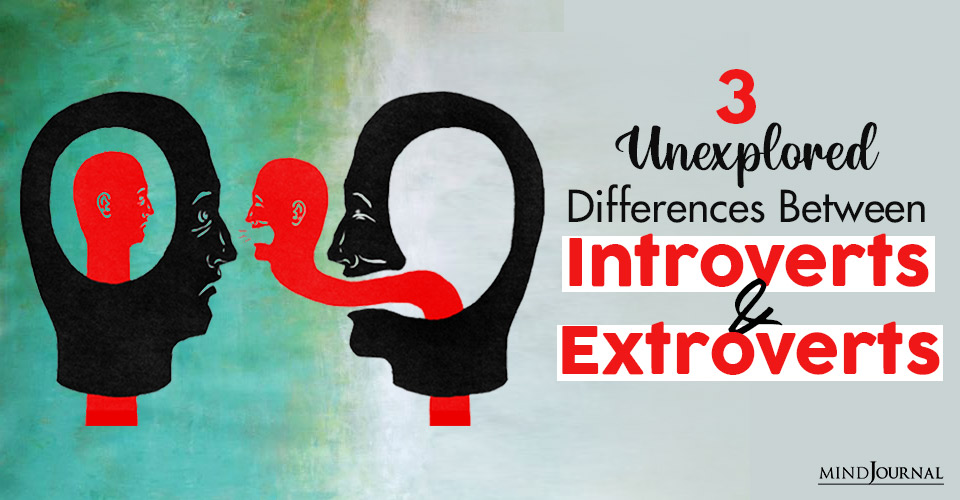Introverts and extroverts differ in lot many aspects. It’s about more than talkativeness, especially at work.
KEY POINTS: Situational strength theory suggests that our environment can enhance or constrain our trait-based tendencies. Three unexplored aspects of introversion-extroversion commonly manifest in workplace settings. Employees can be more fulfilled, and become better teammates when they have a deeper understanding of introversion-extroversion.
The extent to which we are introverted or extroverted is one of the most well-known and influential categorizations of human behavior. Interestingly, our understanding of introversion-extroversion in the workplace is only scratching the surface.
By definition, a personality trait entails a tendency to act or react a certain way across time and setting. But situational strength theory also illustrates that different settings can embolden us to exhibit our core traits, while other settings can trigger adaptive tendencies. In turn, it might be more helpful to evaluate our introverted-extroverted tendencies specific to work settings.
Another issue is that we typically associate introversion with being quiet and extroversion with being sociable. But that’s only part of the story. At its core, introversion-extroversion is about how our behaviors deplete or bolster our energy levels. Introversion-extroversion is also about how we process information, not just whether we share thoughts out loud.

Along these lines, outlined below are three ways that introverts and extroverts are different—besides our tendency to talk—that is specific to the workplace.
I also outline recommendations on what extroverts and introverts can do when working together.
Three ways that introverts and extroverts are different
1. Communication Patterns
A defining characteristic of extroverts is that they tend to be more outgoing and social than introverts. But such behaviors don’t always translate to the workplace. In most cases we don’t have discretion on how much we interact with others; this is predetermined by our job responsibilities. For example, introverted middle-managers might be tasked with constantly communicating with subordinates, superiors, and peers. And a prototypically extroverted sales representative might recognize that their time is limited, and therefore, they get to the point and limit small talk.
Thus, specific to the workplace, introversion-extroversion doesn’t always align with how much we communicate. What it does impact are our communication patterns.
Specifically, introverts and extroverts differ on when and how they “speak up” in the presence of others. Introverts tend to speak up when they have something important and/or novel to say. Extroverts, however, tend to act as stewards of the conversation flow; they consistently paraphrase and summarize what’s been said and where the conversation is heading.
Introverts and extroverts also differ on who they choose to interact with. Extroverts tend to have wider support networks, sharing work and personal information with many. Introverts, on the other hand, tend to share just as much information, but with just a select few colleagues. It’s not that introverts don’t want connections with peers, they just do so with fewer people.
Read 6 Things Extroverts Do That Introverts Will Never Understand
2. Energy
We commonly evaluate the behavioral aspects of introverts and extroverts: Are they quiet and reserved or talkative and outgoing? Although these behaviors are helpful signals as to one’s degree of introversion-extroversion, the origins of these behaviors are actually physiological and psychological.
For introverts, environmental stimulation (which is plentiful in most work settings) depletes energy. For extroverts, environmental stimulation enhances energy. Thus, when introverts don’t seem to talk much, it’s typically because they have depleted their energy tank or are proactively trying to reserve their energy for later. Further, extroverts aren’t talking just to hear themselves talk. To them, stimulation through interaction is like Popeye eating a can of spinach: It gives them what they need to feel alive and well.
Read Introverts More Likely To Suffer From Depression: 6 Tips To Bolster Inner Peace
3. Information Processing
Intelligence is typically conceptualized as the ability to acquire, process, and apply information. Interestingly, introverts and extroverts differ widely in the middle step—the processing of information.
Introverts are more comfortable processing information alone and with plenty of lead time. Extroverts are more comfortable processing information in the presence of others and in real-time.
Perhaps the most common way these differences come to a head is in meeting preparation and administration. Introverts need time to think deeply about material in advance of a meeting. Alternatively, extroverts get more from processing the material in the presence of others, getting clarification or engaging in side-bar conversations in the moment.
Advice for Extroverts Working with Introverts
- Don’t assume that introverts are uninterested during meetings. They just choose their moments.
- Give introverts time to recharge. If they opt out of opportunities to interact it might be because they are more comfortable interacting with a select few, or need to protect their energy levels.
- Give introverts materials in advance. They’ll have a much higher likelihood of contributing effectively during team sessions.
Read 10 Everyday Things Only An Extroverted Introvert Will Understand
Advice for Introverts Working with Extroverts
- Don’t categorize extroverts as being overbearing during meetings. It’s not a character flaw; that’s how they feel comfortable adding value.
- Don’t ignore extroverts. The stimulation helps them thrive. Be a good teammate and participate as best you can, but also be sure to take care of your own energy.
- Don’t check out when extroverts want to generate and debate ideas during team sessions. Although it may be energy-depleting, extroverts need this interaction to work effectively.
For more, visit scottdust.com
Written by: Scott Dust Originally appeared on Psychology Today Republished with permission.



Leave a Reply